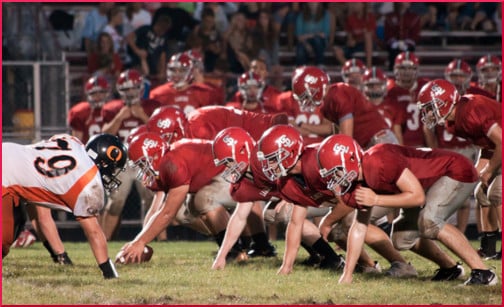
Some call it a vicious circle or cycle, some call it spiraling, and there are other equally descriptive terms as well. What happens is, condition A makes condition B worse, and then condition B makes condition A worse, and off we go into the wild blue yonder of an out-of-control situation.
The relationship between obesity and self-esteem is the perfect setup for one of these cycling situations. Evidence is not hard to find. An uncredited article from MedifastArizona.com said:
Researchers found that obese children between the ages of 9 and 12 years of age felt a low self-worth compared to those of average weight… Obese tweens and teens have been found to show more negative peer reactions compared to those of normal size.
Psychological malaise can manifest in two ways. Problems can be internalized, resulting in anxiety and self-harming behaviors like eating disorders. Equally as alarming are the outward manifestations:
Obese and overweight children and teens also have been found to have more “externalizing” problems, which are those directed outward in the form of back talk, defiance, and aggression.
That was only one random piece of journalism pulled from hundreds of possible examples. These difficulties cause emotional stress, and emotional stress causes overeating, and overeating causes obesity, and obesity causes more emotional stress, ad infinitum.
Part of the basic problem here is that obesity doesn’t even have to be in the picture for things in the life of a teenager to “go south.” NBC News produced an extensive report on the obstacles facing all adolescents, particularly obstacles that were not as prevalent in the past.
Their headline-worthy finding was that teens these days are even more stressed out than adults. That piece of news came straight from the American Psychological Association. The summation went like this:
The agency’s Stress in America survey found that 30 percent of teens reported feeling sad or depressed because of stress and 31 percent felt overwhelmed… On average, teens reported their stress level was 5.8 on 10-point scale, compared with 5.1 for adults.
A high school guidance counselor told the reporter of the huge increase in teens showing up with anxiety and depression. Elaine Leader, head of the national “Teen Line” hotline based at prestigious Cedars-Sinai Medical Center, confirmed that teen stress has become worse in the past few years.
It is of course a multifactorial problem. It seems like kids can do very little just for fun anymore. Sports are relentlessly competitive. While hanging out using social media provides plenty of connection and entertainment, it is just as likely to be a source of anxiety and even menace.
And success in school has become more crucial than ever before. The network’s JoNel Aleccia reported:
An increased emphasis on make-or-break school testing and sharp focus as early as middle school on future college or career plans can be intense for some kids… About 31 percent of kids said their stress level had increased in the past year, twice as many as those who said it went down. And 34 percent said they expected their stress level would rise in the coming year.
Add to the mix the eternal problems of adolescence — trying to win independence from parental control, figuring out the boy-girl stuff, and generally solving the puzzle of finding one’s place in the world. As a result, an ever-growing number of teens “crack under the pressure.”
One of the ways they crack is to develop an eating disorder that can go either way — the kind based on self-deprivation and the illusion of control, such as anorexia, or the kind based on thoughtless self-indulgence and the abandonment of all discipline. And let’s face it, of the two, the route that leads to obesity is much less work. Next thing you know, another 250-pound 12-year-old learns all about the meaning of “vicious cycle.”
Your responses and feedback are welcome!
Source: “Psychological Effects of Obesity on Adolescents | Medifast Arizona,” MedifastArizona.com, 04/16/14
Source: “Teens More Stressed-Out Than Adults, Survey Shows,” NBCNews.com, 02/11/14
Photo credit: wsilver via Visualhunt/CC BY

 FAQs and Media Requests:
FAQs and Media Requests: 











